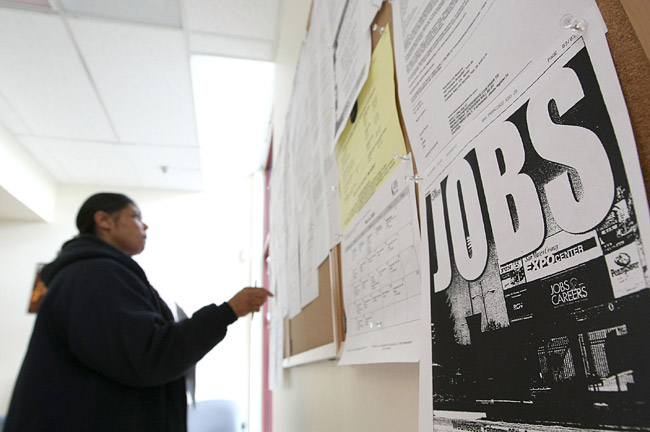
Back to work today (for some).
September 1 marks the end of the Summer Holiday period and a return to work for millions of people who have either been on summer leave, or working in half empty offices and factories as their colleagues take time off.
However this autumn there will be a lot fewer returning to work than last year (and last year was the worst for a decade) and many people will be working in offices half empty as a matter of course from now on as the recession creates more and more empty desks and vacant workspaces.
The Government admits unemployment is rising, but is still in denial about the scale of the problem.
The Chartered Institute of Personnel and Development (CIPD) is keen on broadening who is included in UK unemployment figures. They argue there are large numbers of people who should be counted because they say they would like to work but are considered ‘economically inactive’. If they were included in the count the figure for UK unemployment would rise to more than 4.5m. Even official figures agree that already nearly two million children now live in workless households, shattering Gordon Brown's pledge to halve child poverty by 2010.
The Government claimant count, which measures people who are actively claiming Jobseekers Allowance (JSA), as opposed to the unemployment count that includes people who are unemployed but not signing on, is the published measure of unemployment.
The two different ways unemployment is calculated in the UK relates to the different people included in the counts. Key to this is the group considered ‘economically inactive’ and so not included in the 'official' figure of 2.43m.
In the three months to June, unemployment rose by 220,000, but in July the number of people signing up for unemployment benefits and contributing numbers to the claimant count rose by just less than 25,000.
On this basis there are more than 2.1m “hidden jobless” who when surveyed say they want to work but are not claiming JSA. On top of this there are around a million people currently working part time because they can not find full time work.
Of course every obstacle imaginable is put in the way of people trying to claim jobseekers allowance to keep the numbers down, and in many cases other benefits become available that pay more and encourage people to 'sign off' the register. These include various training programmes, and sickness and disability benefits.
There is a lot more prosperity about than the 1930's and general living standards are far higher on average, so I doubt if we will see soup kitchens, but in my view this recession will create unemployment unprecedented in scale - perhaps as many as 7m Britons capable and willing to work will be without a job at the peak.
And unlike the unemployment of the 1980's which affected the country unevenly (some areas where coal and steel had been the backbone of the economy were blighted where other parts of the UK were relatively unscathed) this unemployment will affect the whole country.
One part of the solution to this is to create a lot more flexibility in the labour market, particularily for very small businesses. Currently the most daunting leap any business makes is when it goes from one employee to two. The hurdles a small business needs to leap in order to employ their first person is mindlblowing, ranging from the need to set up an expensive and hard to operate PAYE system through providing pensions and then navigating what is now a minefield of unfair employment legislation.
Hardly suprising therefore that a record number of one man businesses are staying one man, but if every sole trader employed one young person as a trainee our youth unemployment crisis would end overnight.







.jpg)



No comments:
Post a Comment